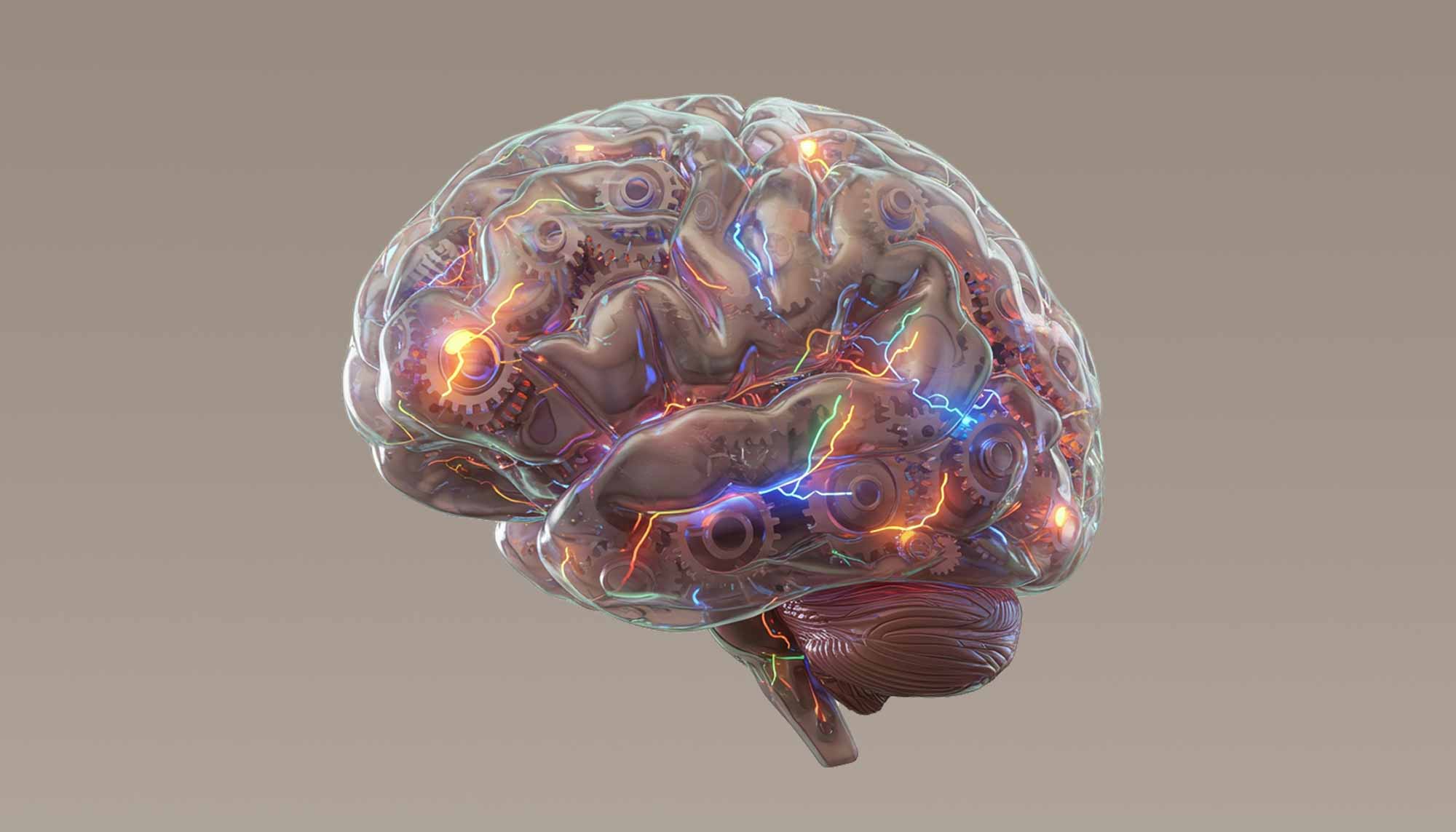Is it Time for a Dopamine Detox?
In a world of dopamine overload it is wise to understand the effect on our wellbeing. A dopamine detox can help us assess our habits and make positive changes to our lifestyle.

Digital Detox Pt.1: Dopamine and Cortisol - Their Roles in Habit Formation and Addiction
The interchangeable roles dopamine and cortisol play in our behaviour and habits. Could a dopamine detox benefit our lifestyle and mental wellbeing?
Dopamine - Consider a Detox
We have a long list of important tasks to tackle, yet we’re sitting, phone in hand, scrolling endlessly. We’ve all been there, and we hate ourselves afterwards. So what is it that causes us to ignore common sense in favour of something pleasurable?... Dopamine.
Often termed the ‘feel-good’ hormone; dopamine gives us a spike in the enjoyable feeling of pleasure. It’s important we have enough dopamine. It forms part of our brain’s reward system and so we’re wired to seek out behaviour that releases it - making us feel great. Unfortunately, this ‘high’ doesn’t last forever. So we repeat actions that give us that positive boost, or dopamine hit. Thus beginning a cycle of habit. Eventually, we can become addicted to dopamine and the actions that give us that surge.
For this reason it’s good to regularly take a look at our habits and see whether we could benefit from a break from this pleasure-seeking pattern - a dopamine detox. To reset our reward system.
Understanding Cortisol
There’s more involved than purely seeking dopamine for pleasure's sake, particularly when habits begin to form. Here’s where cortisol comes into play. Although cortisol is responsible for many important functions in the human body, it is best known as the ‘stress hormone’. This may sound negative but it’s actually essential, in fact, it could be a lifesaver. If we face a sudden stressful situation where a ‘fight or flight’ response is necessary, an increase in cortisol can improve our cognitive function and supply us with the energy needed to react. Balanced correctly, cortisol is an impressively useful hormone. Too much or too little, however, can have a negative impact on our health.
Have you ever felt stressed and exhausted yet struggled to sleep? As the stress continues, have you noticed:
- an increase in appetite?
- brain fog?
- more anxious than usual?
These symptoms could be due to high cortisol levels. If cortisol remains raised it can potentially lead to:
- high blood pressure
- weight gain
- weakened immune system
- mental health issues
Could a dopamine detox help in this area? And how are cortisol and dopamine connected?
Cortisol/Dopamine Relationship
If elevated cortisol levels make us feel a little down in the dumps, what might boost our mood? Yes, dopamine. At least temporarily.
In daily life this can have an effect on our decision-making. Will we take the sensible option: crack on with that list of tasks so that we can feel good later? Or will the desire for a dopamine hit cause us to choose a short-term boost over long-term benefit? Depending on our mood (and cortisol level), we may choose the latter. So instead of taking the most beneficial option, we scroll aimlessly on our phone for way longer than we should, or comfort eat our way to joy.
This dopamine-releasing behaviour may give us a temporary increase in happiness but if it causes us to procrastinate, or turn to things that are bad for us, what could be the result? Guilt, stress, cortisol release; and then we’re back on the hunt for dopamine… does this cycle sound familiar?

It’s easy to see how cortisol and dopamine are connected and can work well together. However, it’s important to recognise the signs that their relationship may be a little off-balance - with the potential to cause addiction.
What Do We Mean By ‘Addiction’?
When we think of addiction we may initially visualise the more well-known forms, such as gambling, smoking and alcoholism. The effects of these addictions are widely understood and recognised. But, are there less obvious addictions that could affect us in this modern world? Yes, many. Although the effects may seem less harmful, long-term they still have a negative impact on our quality of life. In this article we will highlight three of the more subtly addictive activities we can all fall prey to. A more in-depth look at the effects of these will be covered in future posts.
If we notice potentially addictive behaviour creeping into our daily routine, it’s at this point a dopamine detox can make a beneficial difference. A period away from some of the repetitive reward-seeking activities can have a calming effect and give us the reset we need. Giving us the opportunity to focus on healthy habits.
Let’s take a look at some behaviour the cortisol/dopamine cycle can include.
Negative Screen-Time Patterns

On-Screen Entertainment Addiction
We’ve had a busy day, work was stressful. Once home we just want to sit on the sofa and relax in front of the TV. Before we know it we’re five episodes in and it’s way past our bedtime. In an age when multiple seasons of our favourite shows are at our fingertips, we can quite easily end up binge-watching TV for hours.
Why do we do it and could it really be an addiction? As we’ve discussed, engaging in something we enjoy releases dopamine and a feeling of happiness. The more we do it the more we crave it. We particularly crave this release when we’re tired, stressed and cortisol is high. We look for an enjoyable distraction.
So it's not hard to see why watching TV for hours after a tiring day is such a popular way to unwind. It’s easily accessible, feels safe and it can achieve dopamine release over a long period. But is it beneficial? Binge-watching can lead to feelings of isolation and loneliness. It can impact our sleep and our mental health too. It’s wise to manage the amount of on-screen entertainment we allow ourselves to consume. Is this an area that could benefit from a dopamine detox?
Negative News Consumption
Most of us do not enjoy being surrounded by negativity. Yet, mainstream media, the type we’re exposed to from every angle, seeks to make us desire it. And they do it pretty successfully.
They exploit our fears to increase their readers, ratings and profits. When we read an anxiety-inducing headline our cortisol heightens. We then click through with the purpose of understanding the ‘danger’ and how to avoid it. Media outlets hold us hostage. These tactics use our natural desire for safety against us.
With our raised cortisol keeping us on high alert we continue to read negative news, hoping to allay our fears but only adding to our stress. This creates a repeat consumption pattern that dramatically increases the risk of anxiety and depression. A pattern we may struggle to break free from unless we take decisive action.
Social Media Dopamine Loops
Have you fallen down a social media wormhole recently? Picked up your phone to have a little check of your feed and ended up watching short clip after short clip for much longer than you planned? Social media is potentially the most addictive of dopamine inducing screen-time. Users can become addicted to giving and receiving ‘likes’, as well as the constant rolling feed of posts and videos available to view. The process of refreshing the content with a ‘pull-down’ of the screen has been likened to the pulling-down of a slot machine lever; stimulating our brain’s dopamine-releasing reward system. Will the next video be even more rewarding than the last?
This intermittent reinforcement schedule is more addictive than a behaviour with a continuous reward. The element of chance traps us into a sequence of watching, or refreshing, or scrolling a social media feed over and over. This, again, parallels with slot machines and gambling addiction. Could a planned period of time away from social media improve our outlook and productivity?
Alongside a dopamine detox, there are positive, healthy ways to reduce cortisol and increase dopamine without the negative side effects.
Positive Alternatives for Dopamine Release and Cortisol Regulation

Exercise for Cortisol Regulation
It’s well known that exercise is good for our body and mind. A recent study found that physical exercise is associated with reduced cortisol levels. Of course, each person and their circumstances differ but could exercise help you manage your stress levels? We may all do well to look at our daily routine, and if we’re not already, see if we can fit in some gentle to moderate physical activity. Perhaps a morning walk, some stretches, or a swim. If we take this outside into nature it can be even more effective at lowering cortisol, while naturally distracting us from screen time. This can instantly brighten our mental space. Leaving us less likely to crave a dopamine boost from an unhealthy source.
Perhaps a dopamine detox is more achievable than we first thought.
Social Interactions for Healthy Dopamine Release
Dopamine addiction can seriously strain relationships. Loved ones can feel they’re not prioritised over the sufferer's addictive behaviour. In a room filled with people, we can be immersed in an online world separate from any meaningful interaction with other humans. After the dopamine subsides we're left feeling a little empty. Hence, these dopamine-seeking cycles can become habitual and have a negative impact long-term.
Yet, studies have concluded that positive social interactions can stimulate our reward centre more strongly than many other activities. And what’s more, these interactions always benefit more than just ourselves. When we make the effort to give the addictive behaviour a break: chat to a friend, or arrange a meet up; all involved experience a release of dopamine. Without any negative consequences.
Taking positive, healthy steps to gain control over habits that negatively impact our mental and physical health can give us the greatest boost of all. Regulating and eliminating negative habits matters. Could it be time for a dopamine detox?
The next article in this series will explore how unchecked digital habits turn into digital addictions.
Part of the Digital Detox Series.

